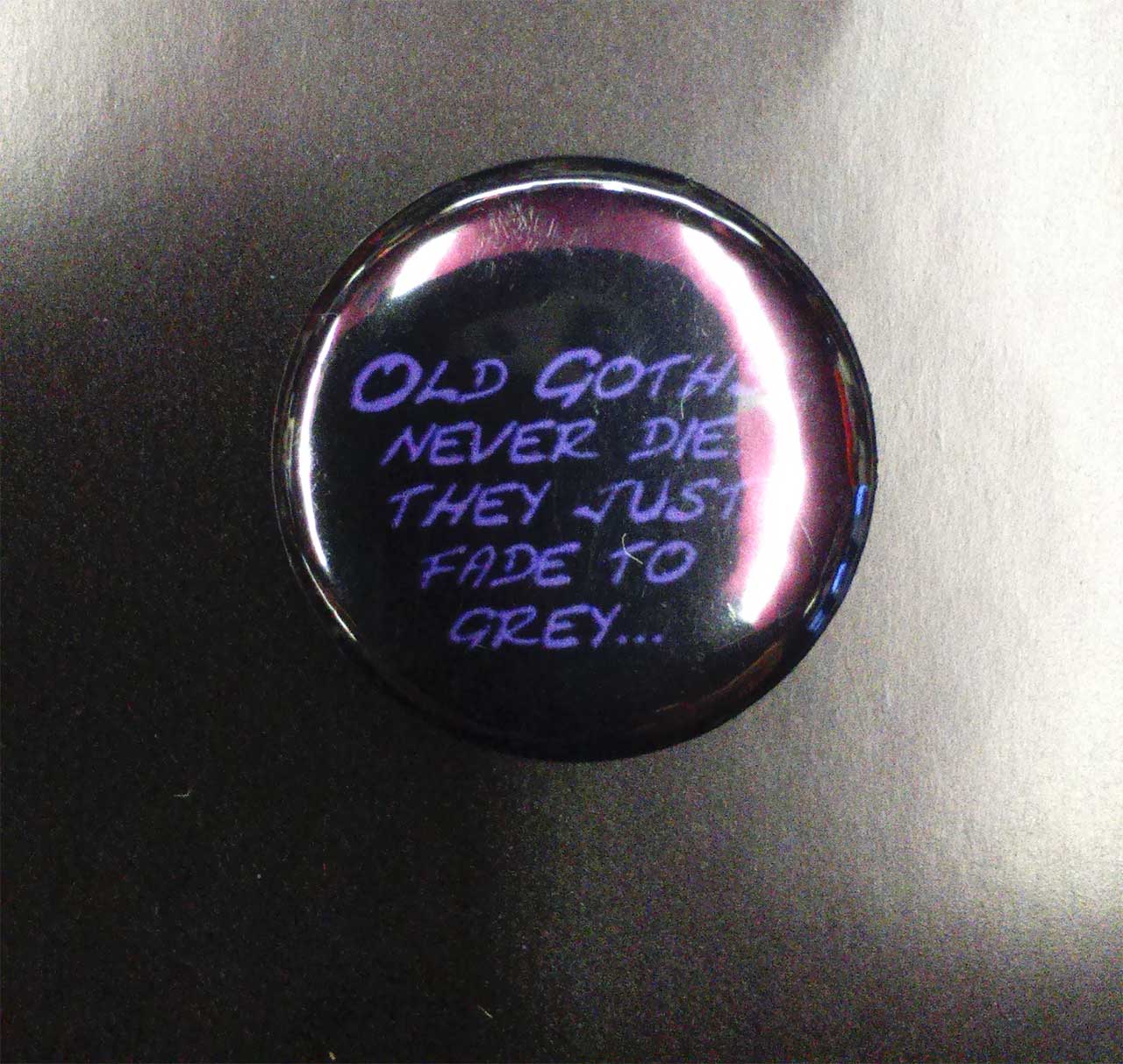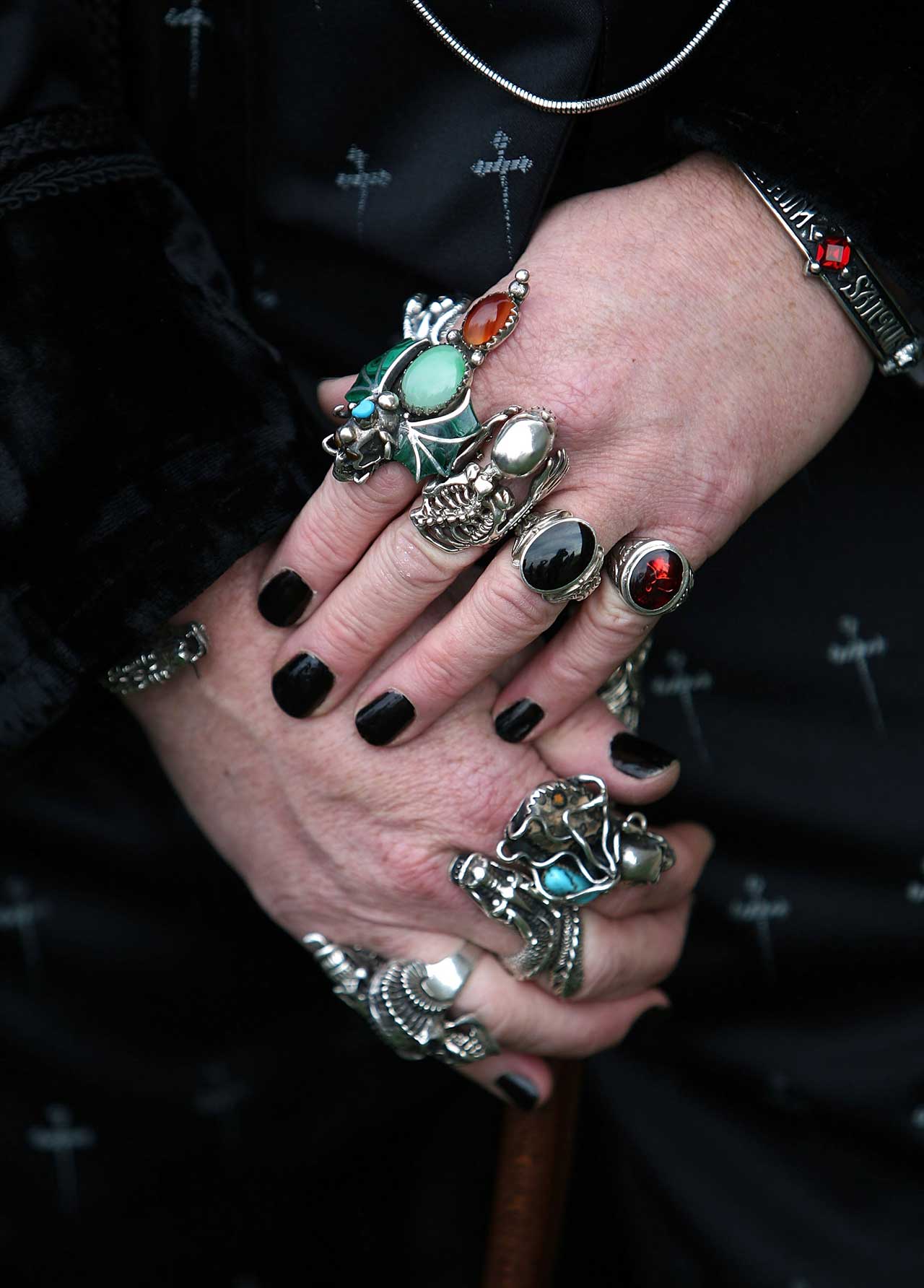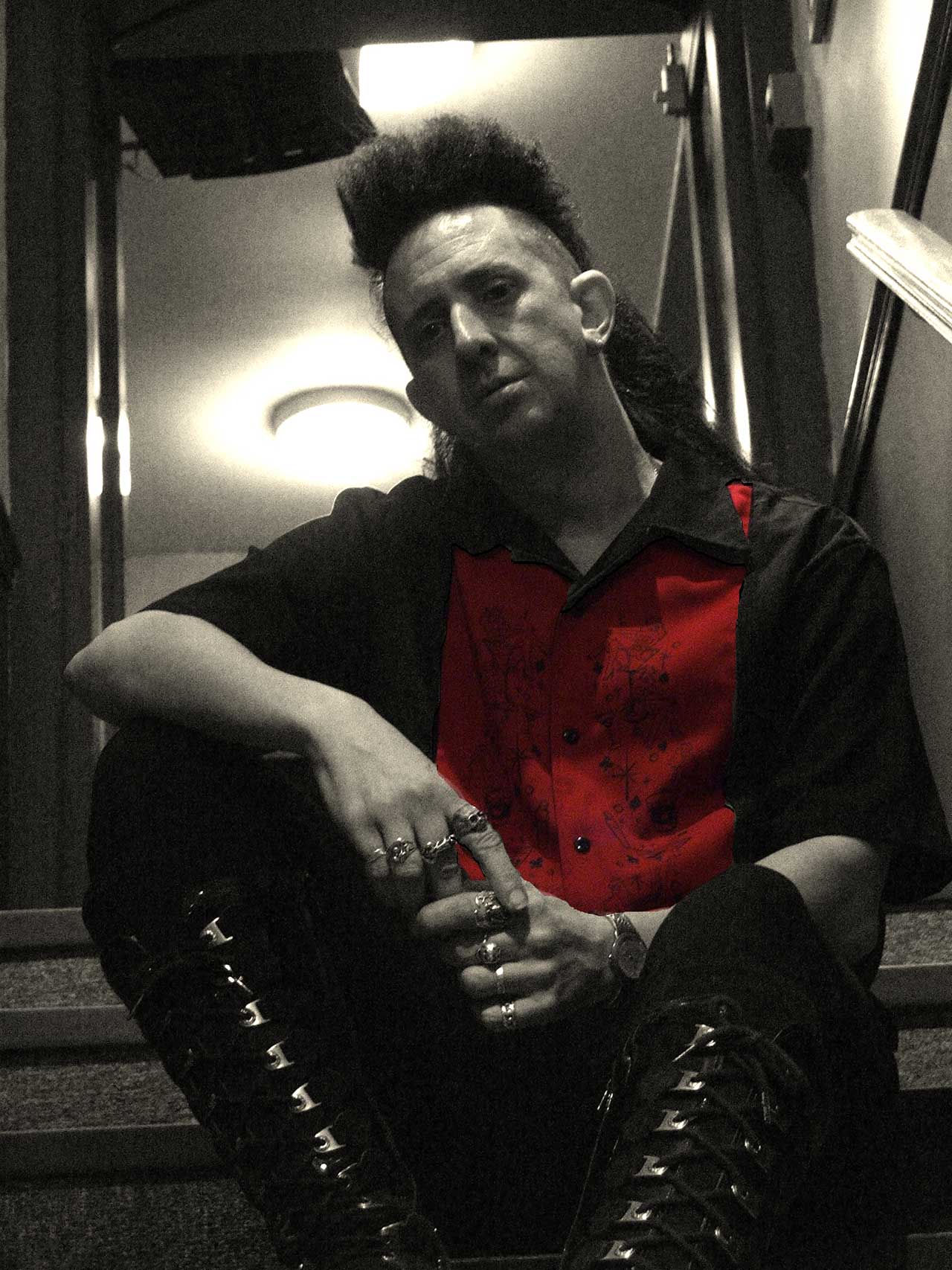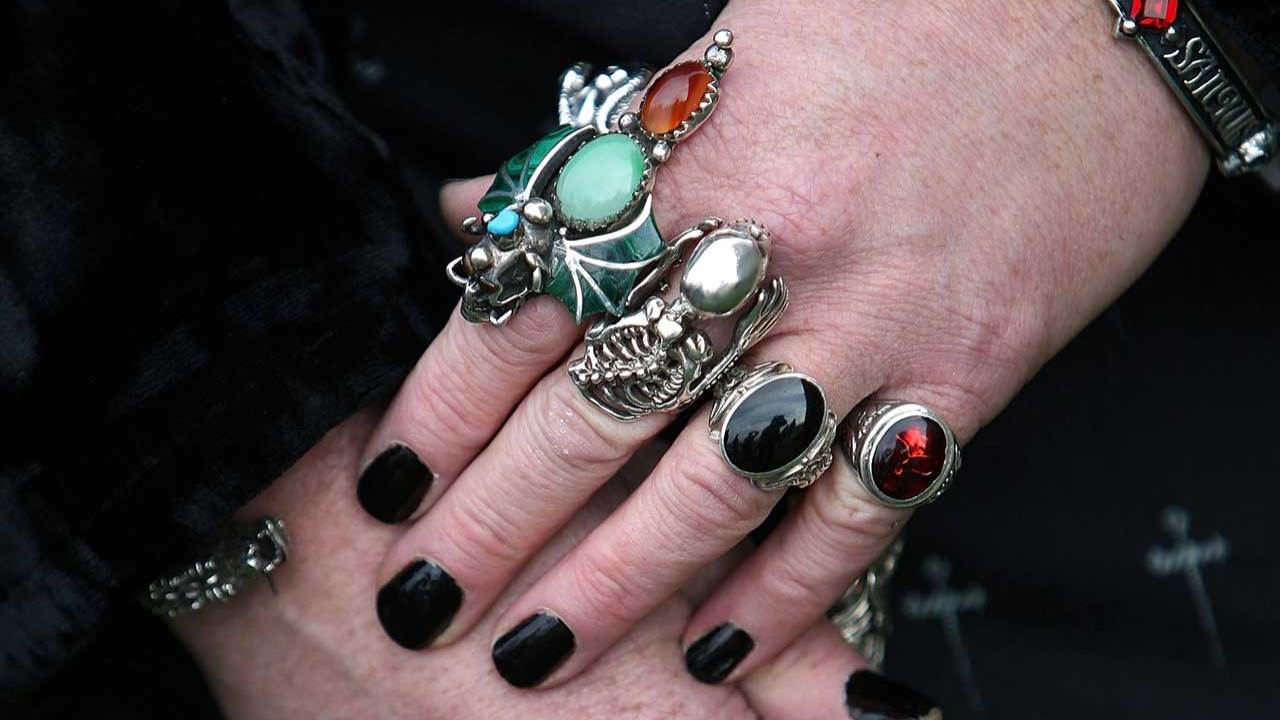How many times have you heard the line: “It’s just a phase”? Or maybe, “You’ll grow out of it”? Yeah, I thought so. But what happens if it isn’t a phase and you never grow out of it?
It’s just gone 2am and the smell of sweet incense fills my nostrils as The Sisters Of Mercy’s ‘80s classic Walk Away pumps across the darkened dancefloor. I’m at Invocation, one of London’s regular goth nights, which has been running for nine years despite never advertising beyond printed flyers and Facebook. The club’s music policy blends classic goth and darkwave bands with new ones and tends to attract a slightly older audience. In fact, just moments earlier, I was talking to guitar teacher Flavio, who recently celebrated his 63rd birthday. He’s a familiar face around the capital’s goth events even though he didn’t actually discover the subculture until he was in his 30s. “For me, it wasn’t an act of rebellion,” he explains, “it was about finding a tribe that I felt comfortable being a part of. I liked the music and the ‘uniform’ too.” And he still does.
Goth, like metal, has evolved over the years. As a youth subculture, it originally emerged from the punk movement in the late 1970s, via Siouxsie And The Banshees and spooky art rockers Bauhaus. It travelled along The Sisters Of Mercy and Fields Of The Nephilim’s darkened paths of gothic rock in the ‘80s, and has even flirted with styles as diverse as industrial, folk and even country. There are festivals all over the world that celebrate different aspects of goth, from Germany’s massive Wave Gotik Treffen to the UK’s dark electronic music event, Infest. More recently, the likes of Grave Pleasures, New Years Day, Motionless In White and Kontinuum have brought new flavours of gothic to the masses. Their music is a far cry from the bands who helped define the early goth sound but their message is the same; life sucks so we’re going to make some dark, cathartic songs about it. Misery loves company, and all that.

Goth has been around for almost (gulp!) 40 years – its parent style, Gothic for several centuries – and yet it’s more relevant than ever. It’s everywhere now, from the high street to the big screen, especially at this time of year. Even The Sisters Of Mercy have recently been back on the road (just don’t call them goths to their faces). But what really happens when goths grow up? Do they wipe their eyeliner off and start wearing beige? Do they, bat bollocks! There’s far more to goth than wearing black and looking a bit depressed, which is probably why it’s not only lasted so long but continues to grow.
Goths work in IT, academia, libraries, the medical profession, accountancy, law, the media… there’s even one in my local supermarket! Just like older metallers, they might find their day job prevents them from going out as often as they’d like, and it might mean they have to tone their look down a bit, but go to any goth club, gig or festival and I guarantee you’ll see goths over the age of 30 there. In fact, if we’re talking about the more established events, you might be forgiven for viewing goth as an older scene. There’s even a growing trend for goth retro clubs, such as Birmingham’s Zombie Club and Whitby’s Nostalgia, which are squarely aimed at a more mature audience, although they do attract the under 30s as well.

Nostalgia DJ Martin ‘Oldgoth’ has been part of the scene since it all began and has been DJing at goth clubs and gigs for the last 30 years. Although he now lives in Colchester, he’s played in cities around the world, including New York, Athens, Berlin and Prague, and has watched goth music and fashion trends wax and wane over the decades. “Goth isn’t a scene you join; it’s one you become part of and that’s why you can’t grow out of it,” he says. “It’s not a fashion, it’s what you are.
Despite his nickname, the only thing he says ageing has affected is his dress sense. “I’m not going to wear PVC trousers in my 50s!” he laughs. “I’m more into jeans and Dr Martens these days, but I still have black hair with shaved sides. I suppose I’m more comfortable not standing out so much these days.”
Purple-haired accountant and DJ, Psyche has merged her passion for goth with her career choices. The former journalist retrained in finance in the early ‘00s, and her business Death And Taxes now provides accountancy services alternative and non-alternative clients alike, including bands, music promoters and even stand-up comedians.
Blue-haired Raven works in market research and came to goth via the punk scene back in the ‘80s. “I’ve looked this way since I left school in ’83 but it’s become more acceptable so I blend in more now,” she says. “A lot of people think goth is sombre and melancholic but it makes me happy and gets me dancing. It’s ever-evolving and I learn so many things from Gothic culture, I even went on a cemetery tour the other week.”

And that’s the thing; goth isn’t just about clubs and gigs. Nowadays, there are groups that promote more thoughtful activities, such as BiblioGoth (a book club with emphasis on darker reading materials) and Gothic Valley WI, who aim to put the ‘black’ into blackberry jam. This women’s institute goes on cemetery tours, bakes spooky cupcakes and invites speakers to discuss themes such as corsetry and vampires. The average age of members is around 34, so they’re not OAPs either!
Someone who’s been paying close attention to our gothic elders is Dr Paul Hodkinson; a goth and Reader in Sociology at the University of Surrey. In fact, a few years ago, he published an essay titled The Collective Ageing Of A Goth Festival. It explored the findings of a long-term study he’s been carrying out on attendees at one of the UK’s biggest goth festivals, Whitby Goth Weekend. In his findings, he even ponders whether goth is a youth subculture anymore.
“‘Youth’ is not so clearly defined as it used to be,” he tells me. “People tend to get married and have kids later than they used to and, likewise, things like home ownership and stable careers tend to emerge later – if at all – which means that a lot of the traditional markers of ‘adulthood’ are less clear-cut than they used to be. My theory is that these changes… make it much easier for goths to carry on right through their 20s and that, crucially, once they have been involved in the scene for a decade or so, it has already become way more than an adolescent phase, which means, in turn, that they have greater motivation to stay involved even after they do get married, have kids and all the rest.”
Ah, yes, kids. Once upon a time, goth babies were unheard of but now even the babiest of bats can have a wardrobe to rival their parents’. No longer do little ones have to make do with pastel onesies as there are numerous companies offering spooky prints on sleeping suits, bibs, booties and even blankets. This theme continues right into children’s wear as well, with a number of goth bands now producing merchandise in youth sizes.
This is something London artist Matt knows all about. When not illustrating surrealist landscapes and designing tattoos, he splits his time between being a father and working as a welfare advice service manager. His son already has quite a selection of goth and ‘normal’ baby grows! But the big question is, will he and his wife encourage the little lad to be a goth once he’s old enough? “We won’t force him,” he says. “It should be his decision and if he wants to come to the music festivals with us, we’ll take him.”
From a London nightclub, to a quaint north Yorkshire fishing town; Whitby is where the fictional vampire Count Dracula first landed on British soil and it’s also become a bit of a spiritual home for goths over the last few decades. Whitby Goth Weekend is held here twice a year and it’s also home to the Bram Stoker International Film Festival, which is where I am right now. Although primarily an event for horror movie aficionados, live bands have recently been added to the line-up. Fields Of The Nephilim performed here last night and Gothminister are due on any moment but before they arrive, there’s a brief interlude. Glamorous compère Joe Black gets us all to sing ‘happy birthday’ to a Canadian attendee who’s celebrating his 60th today. He emerges from the audience, complete with vampire prosthetics and, while he might not actually be a goth, he’s clearly having a ball.
Now let’s get this straight, not all goths are fans of vampire-related culture and not all vampire fans are goths but, for quite a number, it is a shared passion. Scanning the audience I spot a familiar bearded face. Alan has been going to goth gigs and festivals for many, many years and this evening, he’s travelled all the way up from Watford to see the bands. “I’ve recently had my 50th and I’m still manically chasing around after bands,” he grins. “The only problem is getting enough holiday allowance to fit everything in!” Over the summer, he took advantage of this when he joined around 60 goths on a coach trip with a different. It was part of the annual Goths On A Bus pilgrimage to Germany for the dark music festival, M’era Luna. “Few of us really ‘grow up’,” he adds, “we just get older!”
Given the number of classic gothic rock concerts that have taken place already this year, it looks like a lot of goths agree. With Whitby Goth Weekend happening right now and Fields Of The Nephilim due to tip flour all over London again this December, it seems there’s no chance of this ‘phase’ ever ending.
Now excuse me while I get ready for another gig!

